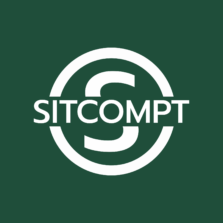Once upon a time, cyber cafes were bustling hubs of digital activity, offering internet access to those without a personal Internet connection. However, as technology advanced and personal devices have become ubiquitous, the popularity of cyber cafes has diminished. Yet, their legacy persists — and with it, the potential cybersecurity risks that many users may not fully appreciate.
While the nostalgia associated with cyber cafes might bring a smile to your face, it is essential to acknowledge the security risks that persist. Public computers in these establishments, often old or lacking regular maintenance, can be breeding grounds for cyber threats. Outdated software, inadequate security measures, and shared user accounts create a ripe environment for malicious activities. It is not uncommon for users to forget logging out of their accounts or for malicious actors to install keyloggers or other spyware to steal information.
Even if the popularity of traditional cyber cafes has diminished, the concept of shared public computers still exists in various forms today — from libraries to co-working spaces, hotel business centers, e.t.c. The same security concerns apply, putting individuals and businesses at risk. Users might inadvertently expose themselves to malware, data theft, or unauthorized access when utilizing these shared resources.
Mitigating the Risks
Be cautious with Personal Information. Do not access sensitive accounts or carry out financial transactions on public or shared computers. Do not leave the computer unattended while you are still signed in.
Watch out for people who might look over your shoulder or stand too close to you with the intention of capturing your information as you enter or view it on the computer.
Do not let the browser remember or save your login information. Always sign out of websites completely. Just closing the browser window is not enough.
Use private browsing mode (incognito) or clear browsing data after your session — including browsing history, cookies, download history, cached images and files, autofill form data, passwords, e.t.c. Reboot the computer after that, if possible.
In conclusion, be aware that a public or shared computer might have a software or hardware installed that monitors and records your activities in real time. The best way to mitigate this is to avoid using a public or shared computer in the first instance. Have you ever blundered while using a shared computer? Share your thoughts with us!


